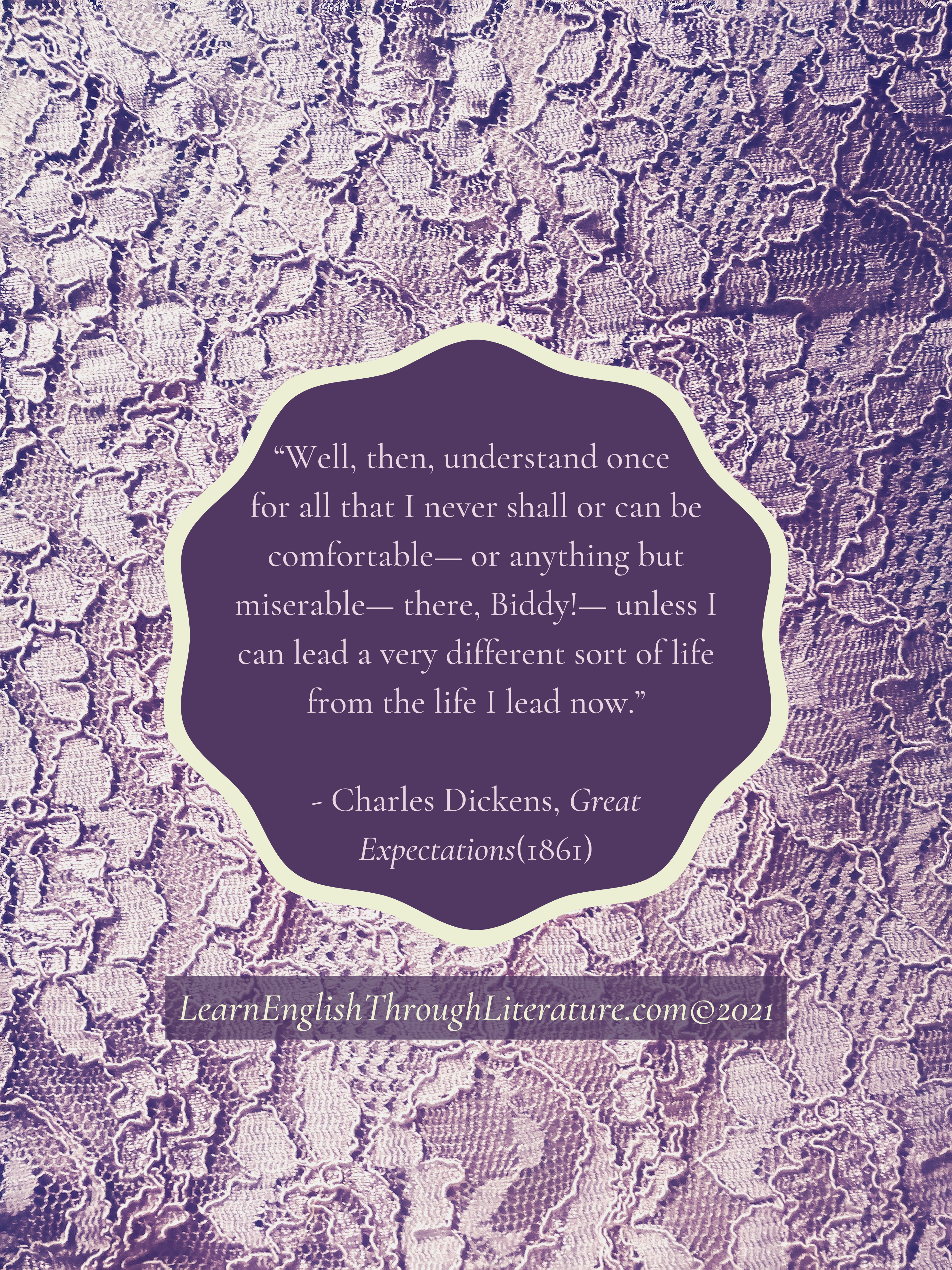If you are interested in classic English literature (and if you are reading these Lessons, why wouldn’t you be? 😊), you have surely heard of Charles Dickens’ Great Expectations (1861).
📘 “Well, then, understand once for all that I never shall or can be comfortable— or anything but miserable— there, Biddy!— unless I can lead a very different sort of life from the life I lead now.”
– Charles Dickens, Great Expectations (1861)
It is probably his most famous novel of all, and one that you should probably consider reading at some point if you would like to improve your English further while enjoying a good story!
Since this book is full of stories surrounding Pip’s expectations, Charles Dickens relies heavily on modal verbs to express wishes, hopes, requests, suggestions, possibilities and probabilities.
I then realised how many excellent instances of ‘can’ and ‘could’ – modal verb forms – are to be found in its pages – perfect for starting off a Lesson in two parts on this subject!
✍️ Can and could cover so many aspects in English.
Abilities, offers, possibilities, permissions, requests, and suggestions, to name but a few!
Keep reading to find out:
- How to conjugate can and could
- What is the difference between them?
- How to write or pronounce the negative forms
- Different uses of can and could
…
📝 CONJUGATING CAN AND COULD
We have looked at modal verb forms before in different lessons (Lessons #150, #152, and #170). Modal verbs, no matter what person is doing the action (I, you, he/she/it, we, etc.), will always take the bare infinitive – the infinitive verb without ‘to’.
I told him I must go, but he took no notice, so I thought the best thing I could do was to slip off.
Here the bare infinitive verb was ‘do’, following ‘could’.
…
📝 WHAT IS THE DIFFERENCE BETWEEN CAN AND COULD?
Can and could have the same meaning but illustrate different perspectives or styles:
They can talk about the past or present, they can describe something in an informal or formal way, and their emphases can be either strong or weak.
…
📝 NEGATIVES
✍️ The negative of can is cannot (a single word).
✍️ The negative of could is could not (two separate words).
When condensed or abbreviated, especially in spoken or informal English, they are written as follows:
Can’t
Couldn’t
…
👉 In part 2 of this Lesson, we will consider 6 different uses can and could have in English. Join me there!




